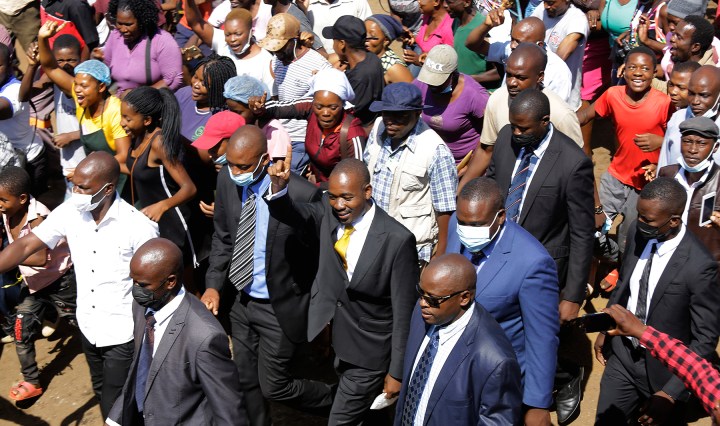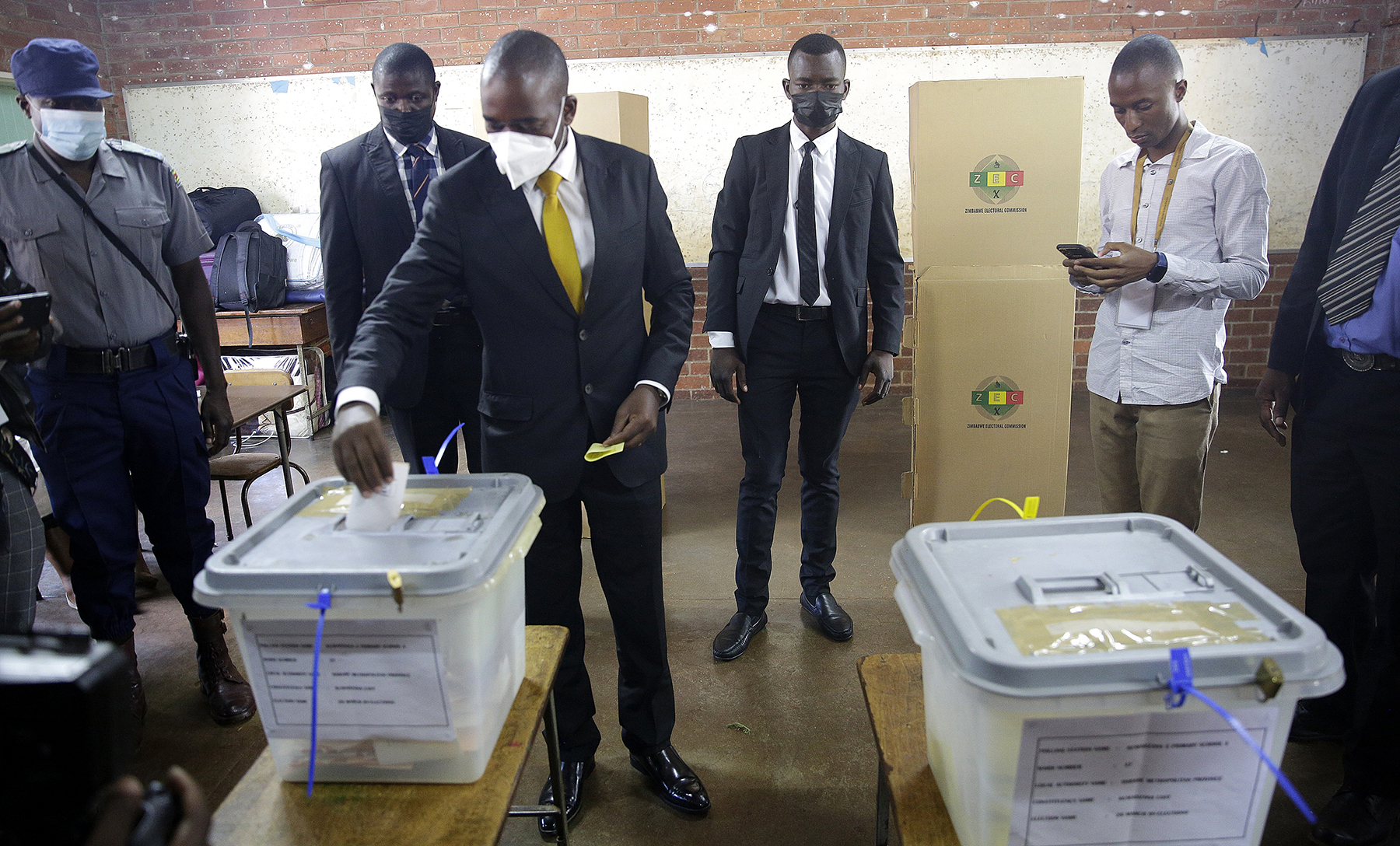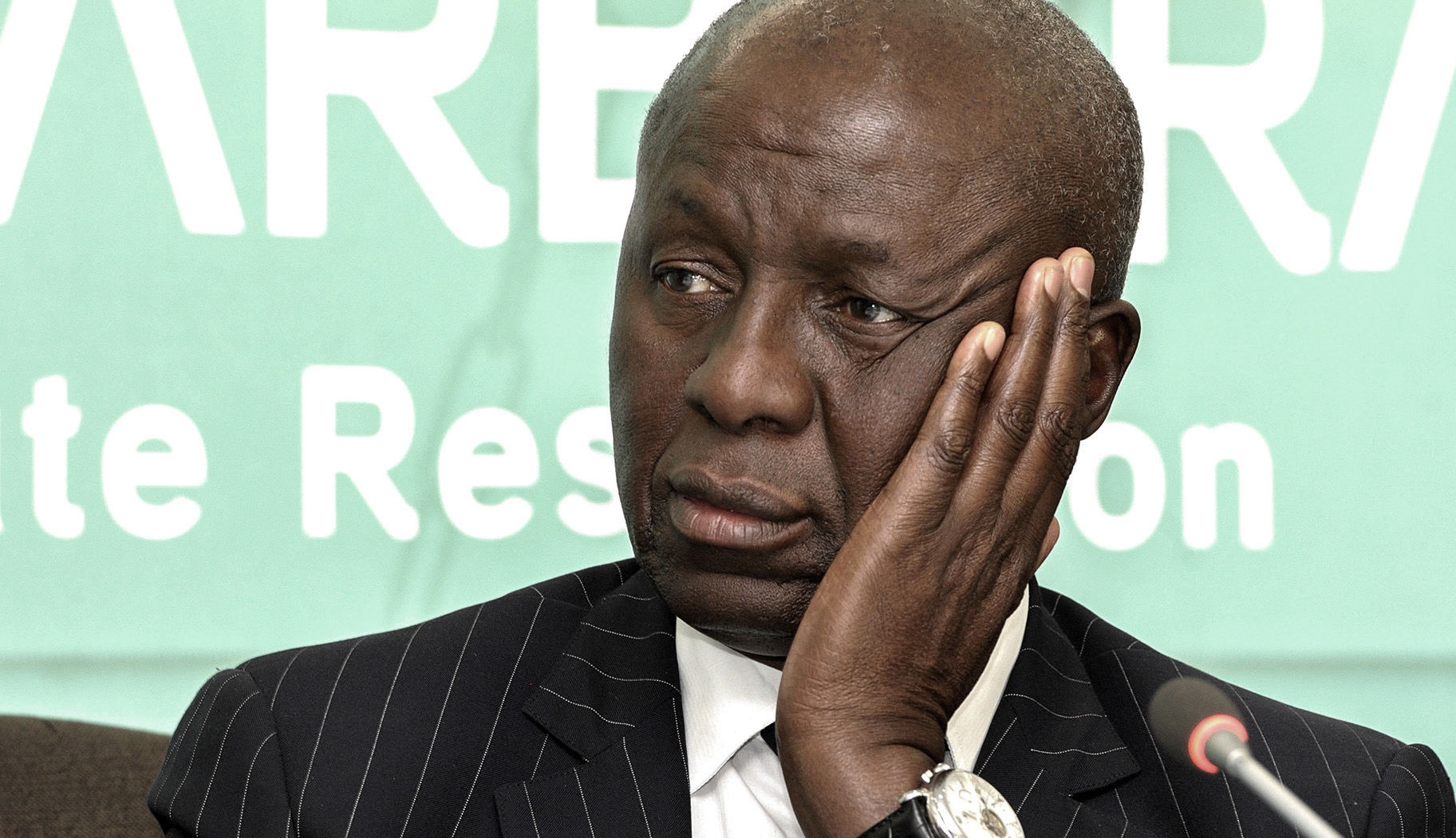ZIMBABWE IN RUINS OP-ED
Is the solution for Zimbabwe elections or constitutionalism, rule of law and a de-militarised state?

The sine qua non of any return to constitutionalism in Zimbabwe must be the return of the military to full civilian control — this is a necessary but not sufficient condition for full constitutionalism. Much more needs to be done before any election can be persuasive enough to suggest legitimacy in a government in Zimbabwe, no matter who wins an election.
For 22 years, the only solution to the political crisis in Zimbabwe has been the resort to elections, and the forlorn hope that an internationally accepted election result would guarantee the legitimacy for the country to re-engage with the international community. Unfortunately, it is also the solution advocated by the two major political parties in the country. Both parties claim that the legitimacy that will flow from an internationally accepted election will prove to be the panacea that will end the crisis and resolve the deep-seated problems – political, economic, and social – that afflict Zimbabwe. We reject this misguided optimism as we have since 2016.
The hope about elections has been fostered by the surprising result in the Zambian election and the re-emergence of a popular opposition, the Citizens Coalition for Change (CCC). Whilst it is heartening to see this, it is evident that this merely deepens the political polarisation in the country — a country that is the most politically polarised in Africa. This polarisation is reflected in the total absence of political trust by the citizens in political parties, the government, and the state.

Zimbabwe’s main political opposition leader Nelson Chamisa (C) casts his vote at Kuwadzana Primary School in Harare, Zimbabwe, 26 March 2022. (Photo: EPA-EFE/AARON UFUMELI)
The hope is also given new energy by the results of the by-elections and the confirmation that, despite all the manoeuvring to destroy the Chamisa faction of the MDC, the new party, the CCC, restores the polarisation of two big parties in Zimbabwean politics. Zanu-PF will have to face the fact that no Government of National Unity or political settlement can take place without the CCC, and that buying time to resolve its internal chaos has not changed the political reality in Zimbabwe.
The low poll, which is usually the case, also demonstrates the total absence of political trust in the state, the government, and political parties.

People attending the Citizens Coalition for Change (CCC) campaign rally in the township of Highfields, Harare, Zimbabwe, 20 February 2022. Party leader Nelson Chamisa addressed the crowds attending the campaign rally ahead of the 26 March by-elections. (Photo: EPA-EFE/AARON UFUMELI)
Citizens in Zimbabwe trust only NGOs and religious leaders, and too often the vote for the opposition is a mixture of support as well a rejection of Zanu-PF, with the opposition seen as the lesser of two evils. The Afrobarometer survey in 2021 found that nearly half (49.8%) of Zimbabweans would not vote, and didn’t know, or would not say who they would vote for. Mostly this is argued to be due to the “fear factor”, but it is also due to the total lack of political trust.
This latter seems strongly plausible with the complete failure of governments since 2000 to address the deepening poverty that afflicts most Zimbabweans, to stem the vast corruption that is documented nearly every week, and the slow but steady collapse of the state and its ability to deliver public goods and services to the population.
We reject this forlorn hope about the curative power of elections because the impediment to such a solution remains the securocrat state, the deep structure that controls civilian affairs in Zimbabwe. As we have pointed out repeatedly since 2016, the civilian state has been invisibly controlled by the military since 2008, and visibly since the coup in 2017.
In the misguided belief that Zimbabwe’s problems were due solely to the “Mugabe factor”, local, regional, and international factors accepted uncritically the notion that this was merely a “military-assisted transition” and not the flagrant violation of the constitution. As we pointed out in 2017, the notion, supported in the Zimbabwean courts, that the right for the military to unilaterally decide to intervene in civilian affairs flies in the face of the constitution and violates any notion of constitutionalism.
No country in the Southern African Development Community (SADC) would allow this, and all countries in SADC exist with the military firmly under civilian control. It is extraordinary that this situation has been allowed to persist unchallenged.
The sine qua non of any return to constitutionalism in Zimbabwe must be the return of the military to full civilian control: this is a necessary but not sufficient condition for full constitutionalism. Much more needs to be done before any election can be persuasive enough to suggest legitimacy in a government in Zimbabwe, no matter who wins an election.
Constitutionalism requires the full and untrammelled implementation of the constitution, and absolute adherence to it. This means that there should be no attempt to amend the constitution before it is fully and completely implemented: only when it is so implemented will we be able to determine where the drafters and the legislators are in error. Constitutionalism means that no political party should ever attempt to amend the constitution for narrow partisan interest, as is the current attempt by Zanu-PF.

Dikgang Moseneke, Acting Chief Justice of South Africa. (Photo: Joyrene Kramer)
The errors in the constitution emerge only when the constitution is fully tested through its lived application, and, since the coup, we have already seen at least one problem, what Dikgang Moseneke has termed an “imperial presidency” in South Africa. The same comment might be made about Zimbabwe, and has been continuous problem since 1987.
In adhering to constitutionalism, it is imperative that there is similar rigid adherence to the Rule of Law, that the law is applied equally and without fear or favour to every single citizen and resident in the country. It is here that we see the need for massive reform of the captured state.
Every aspect of the state is subject to political manipulation, and, without reform of the judiciary, the security services, and the public service, there can be no rule of law or impartial implementation of regulation. The heavy (and mostly invisible) hand of direct political influence in the administration and accountability of the state must be removed. Here it is commonplace that it is exactly this situation that has rendered every single election since 2000 unacceptable and the legitimacy of all governments open to challenge since then.
There are even deeper questions to be addressed.

People gather around a fire on the street during a protest against polling results in Harare, Zimbabwe, 01 August 2018 (issued 02 August 2018). The day saw protests turn violent when police fired rubber bullets and teargas, before the army was called in and began firing live rounds. (Photo: EPA-EFE/YESHIEL PANCHIA)
All the foregoing is critical to the question of what kind of a country do citizens want and what do they expect a government to provide. It is obvious that they want personal safety, secure livelihoods, jobs, efficient and responsive public services, but do they accept that these will flow from a neo-liberal, trickle-down economy? Do they accept that the current enclave economy and the drive to so-called “middle income” country status is what they desire? Do they accept “command” government, or do citizens wish to have a say in the direction the country takes? And do the current political parties offer any alternatives to what is on offer?
None of these questions can be answered in the absence of a political economy bereft of constitutionalism and the rule of law.
Zimbabwe needs a new social contract. In fact, it actually needs a social contract for the first time since 1980: Lancaster House, the Unity Accord, the Global Political Agreement, and, to some extent, even the 2013 constitution have failed to deliver this.
We need a social contract that defines unequivocally the aspirations of the nation as a whole and resolves the national question about what kind of country is Zimbabwe and who is a Zimbabwean.
This can only emerge from a national process. Zimbabwe needs a political settlement and a national dialogue with extreme urgency, and only such a process can resolve the problems of a militarised state, the unequal and corrupt allocation of resources, an enclave economy, and increasingly failed public services.
As we have repeatedly pointed out, only the reform process of a National Transitional Authority can do this: this will be the only way we can cure the coup! DM/MC
Ibbo Mandaza and Tony Reeler are Co-Conveners of the Platform for Concerned Citizens (PCC).
[hearken id=”daily-maverick/9317″]




















 Become an Insider
Become an Insider
Comments - Please login in order to comment.